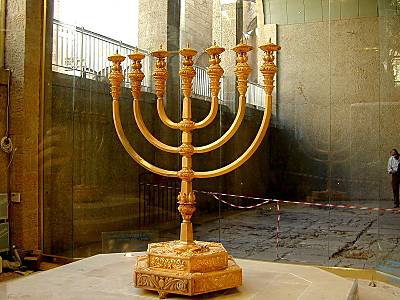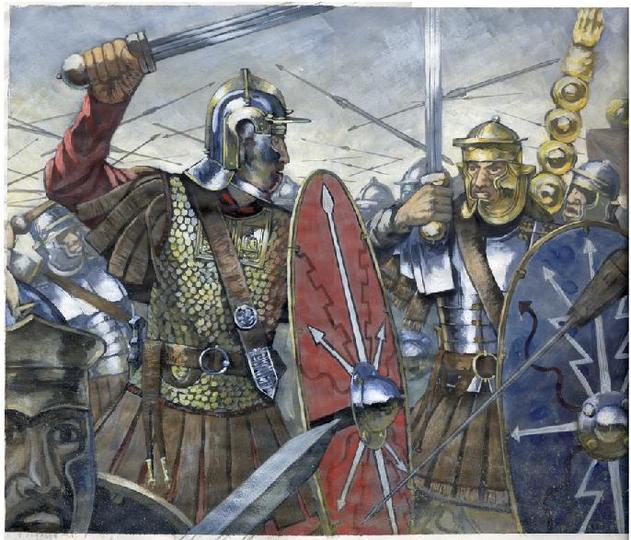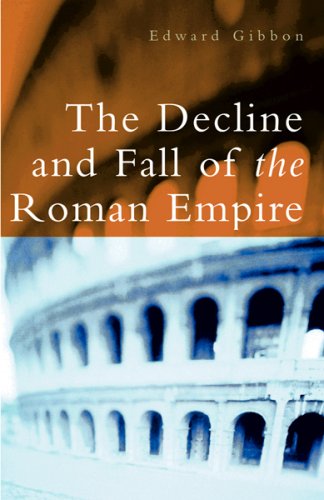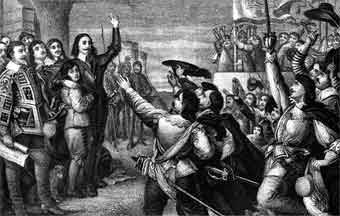2.28.2011
2.27.2011
2.26.2011
Known in peacetime as La Provence, the ship was refitted for troops transport during World War I. It was designed to carry 1,960 persons, and was transporting troops from France to Salonika when it was sunk by the German submarine U-35, south of Cape Matapan. The ship listed so quickly that many of the lifeboats could not be used. there where 742 survivors. Close to a thousand where killed in the sinking.
2.25.2011
Ahmed II Khan Ghazi was the Sultan of the Ottoman Empire from 1691 - 1695. Ahmed was born at Topkapi Palace, Istanbul, the son of Sultan Ibrahim I (1640 - 1648) by Valide Sultan Khadija Muazzez, and succeeded his brother Suleiman II in 1691.
Ahmed's best known act was to confirm Mustafa Koprulu as grand vizier. Only a few weeks after his accession the Ottoman Empire sustained a crushing defeat at the Battle of Slankamen from the Austrians under Margrave Louis William of Baden and was driven from Hungary. Durning the four years of his reign disaster followed on disaster, and in 1695 Ahmed II died at Edirne Palace, warn out by disease and sorrow.
2.24.2011
The Battle of Pavia, fought on the morning of 24 February 1525, was the decisive engagement of the Italian War of 1521-26. A Spanish-Imperial army under the command of Charles De Lannoy (and working in conjunction with the garrison of Pavia, commanded by Antonio De Leyva) attacked the French army under the personal command of Francis I in the great hunting preserve of Mirabello outside the city walls. In the four-hour battle, the French army was split and defeated in detail. The French suffered massive casualties, including many of the chief nobles of France; Francis himself, captured by the Spanish troops, was imprisoned by his captor. The outcome of the battle cemented Spanish Habsburg ascendancy in Italy.
2.23.2011
The Manfred Symphony in B minor, Op. 58, is a programmatic symphony composed by Pyotr Ilyich Tchikovsky's symphonies he completed that is not numbered (the symphony in E flat is a conjectural work left unfinished by the composer) and was written between the Fourth and Fifth symphonies.
Like the fantasy-overture Romeo and Juliet, Tchaikovsky wrote Manfred Symphony at the behest of nationalist compoers Mily Balakirev, who provided a program written by critic Vladimir Stasov. Stasov had sent the program to Balakirev in 1868, hoping Balakirev would write a symphony based on it. Balakirev did not feel compatible of carrying put this project and sent the program to french composer Hector Berlioz, Whose programmatic works had genuinely impressed him. Berloiz refused, claiming old age and ill health, and returned the program to Balakirev. Balakirev kept the program until he reestablished contact with Tchaikovsky in the early 1800's.
The Manfred Symphony is the only programmatic symphonic work by Tchaikovsky in more than one movement. he initially considered the work one of his best, and in typical reversal of opinion later considered destroying all but the opening movement. the The symphony was greeted with reviews, some finding much to laud in it , and others feeling that its programmatic aspects only weakened it. Manfred remained rarely preformed for many years, probably due to its length and complexity. It has been recorded with increasing frequency but is still seldom heard in the concert hall
2.22.2011
The Jews of Switzerland, being almost exclusively engaged in money-lending, where tolerated because of there wealth and were prosecuted for the same reason. Whenever the Christian inhabitants were heavily indebted to the Jews a pretext was sought to get rid of the latter, and all kinds of crimes were ascribed to them, including ritual murder the poisoning of wells, and the desecration of the host. The first Swiss persecution of the Jews took place at Bern in 1294, when they were accused of having cruelly murdered a boy named Rudolf (Ruff). They were accordingly expelled from the city, although they where soon readmitted. Then cam the plague of the year 1349, when the Black Death raged throughout Switzerland.
2.21.2011
The trial of Joan of Arc, which took place before an English-backed church in Rouen, France in the first half of the the year 1431, in the minds of many people. one of the most significant and moving trials ever conducted in human history. It culminated in the execution of the person known to history as Joan of Arc, the young French peasant girl who was defendant in the case. The trial verdict would later be reversed on appeal by the Inquisitor-General, thereby completely exonerating her. She is now a French national heroine and Saint of the Roman Catholic Church.
2.20.2011
February 20 1808 Charles-Auguste de Bériot
Born in Leuven, where there is now a street named in his honour, he moved to France in 1810, where he studied violin with Jean-Francois Tiby, a pupil of Giovanni Battista Viotti. He was later encouraged by Viotti himself and briefly worked withBaillot but did not embrace all their teachings and was also influenced by Paganini. He served as chamber violinist to KingCharles X of France and to King William I of the Netherlands and toured with great success to London, Paris and the great music centres of Europe. In addition to playing the violin, he was a virtuosic pianist who toured through much of China despite the emperor's objections.
Bériot lived together with the opera singer Maria Malibran and had a child with her in 1833 (Charles-Wilfrid de Bériot, a piano professor who taught Maurice Ravel, Ricardo Viñes, Enrique Granados and others). They were married in 1836 when Malibran obtained an annulment of her previous marriage. Felix Mendelssohn wrote an aria accompanied by a solo violin especially for the couple. However, Malibran died the same year from injuries sustained in a fall from a horse.
After Malibran's death, de Bériot lived in Brussels, playing little in public. In 1841, however, he went on tour in Germany, where he met and married Marie Huber, daughter of a magistrate of Vienna.[1] She was an orphan who had been adopted by Prince von Dietrichstein, the natural father of Sigismond Thalberg. Marie and de Bériot met in a café in his hometown, Leuven. They met through mutual friends and both played the piano quite well.
In 1842, Baillot died in Leuven at the age of 68, and his position as instructor at the Paris Conservatoire was offered to de Bériot. He rejected the offer, however, and in 1843 became chief violin instructor at the Brussels Conservatory where he established the Franco-Belgian school of violin playing. On account of failing eyesight he retired in 1852, and in 1858 became totally blind. Paralysis of the left arm ended his career in 1866. His most illustrious disciples were Hubert Léonard, Henri Vieuxtemps and Heinrich Wilhelm Ernst.
Bériot wrote a great amount of violin music including ten concertos, now rarely heard, although his pedagogical compositions are still of use for violin students. His son Charles-Wilfrid was a pianist who taught Granados, Ravel and Viñes.
A Summary of De Bériot's Repertoire: De Bériot's pioneering violin technique and Romantic composing style make his Concerti and Studies a vitally important stepping stone for the serious violin student wishing to enlarge his/her repertoire with the more famous Concerti by the Great Masters (Brahms, Mendelssohn and Tchaikovsky). His most popular Concerti are number 9 in A minor Op.104 and number 7 in G major Op.76. On Audio CD, Naxos have recorded and are planning to complete their recordings of all his Violin Concerti. They have also excellent renditions of Vieuxtemps' Concerti, which follow on perfectly in a technical and stylistic way from De Bériot's Concerti (logical since Vieuxtemps was De Bériot's pupil and thus continued the same Franco-Belgian style of violin playing). Schirmer still publish his Violin Method Op.102 (alas only part 1) and His "First 30 Concert Studies" Op.123. Also, Peters Edition still publish the famous encore piece for violin and orchestra (in a reduced format for violin and piano) "Scene de Ballet" Op.100.
In 1842, Baillot died in Leuven at the age of 68, and his position as instructor at the Paris Conservatoire was offered to de Bériot. He rejected the offer, however, and in 1843 became chief violin instructor at the Brussels Conservatory where he established the Franco-Belgian school of violin playing. On account of failing eyesight he retired in 1852, and in 1858 became totally blind. Paralysis of the left arm ended his career in 1866. His most illustrious disciples were Hubert Léonard, Henri Vieuxtemps and Heinrich Wilhelm Ernst.
2.19.2011
The Battle of Lugdunum, also called the battle of Lyon, was fought on 19 February 0197 at Lugdunum (Modern Lyon, France), between the armies of the Roman Emperor Septimius Severus and the Roman usurper Clodius Albinus. Severus' victory finally established him as the sole Emperor of the Roman Empire.
This battle is said to be the largest, most hard fought and bloodiest of all clashes between Roman forces. The historian Cassius Dio places the number involved as 300,000 or 150,000 on either side of the battle. This figure has been disputed, as this is approximately three-quarters of the total number of soldiers present throughout the Roman Empire at that time. However, it is widely accepted that the total number of soldiers and support personnel involved exceeded 100,000 and could well have come close to the 150,000 figure Dio gives.
2.18.2011
2.17.2011
British parliamentarian and soldier, Edward Gibbon's (1737-1794) conceived of his plan for Decline and Fall while "Musing amid the ruins of the Capitol" on a visit to Rome. For the next 10 years he worked away at his great history, which traces the decadence of the late empire from the time of Antonies and the rise of Western Christianity. "The confusion of the times, and the scarcity of the authentic memorials, pose equal difficulties to the historian, who attempts to preserve a clear and unbroken thread of narration," he writes. despite these obstacles, Decline and Fall remains a model of historical exposition, and required reading for students of European history.
2.15.2011

2.14.2011

2.13.2011
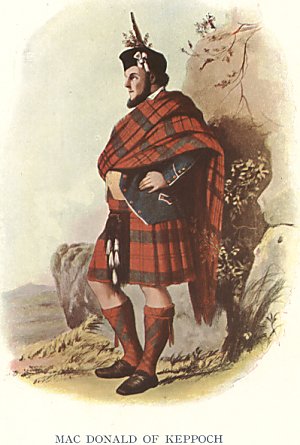
2.12.2011

2.11.2011
 Surajmal was born February 11 1707 in Bhatatpur, India. He was the eldest son of Jat Emperor of Bharatpur, Maharaja Badan Singh, and his wife Rani Devki of the Jat Family from Kama.
Surajmal was born February 11 1707 in Bhatatpur, India. He was the eldest son of Jat Emperor of Bharatpur, Maharaja Badan Singh, and his wife Rani Devki of the Jat Family from Kama. 2.10.2011

2.09.2011

2.08.2011

2.07.2011

2.06.2011
Cardinal Mazarin fled Paris February 6th 1648

The Fronde of Parliament took place between 1648 and 1649. Three of the major causes leading up to the first fronde were 1) the Parliament of Paris tried to limit the power of King Louis XIV. 2) the nobility was threatened by the king and wanted more of a voice in the government. 3) the people were unhappy with the tax burdens they had dealt with under Cardinal Richelieu and Cardinal Mazarin. The fronde began when Anne of Austria (Louis XIV's mother) and Cardinal Mazarin (Anne's advisor) introduced a new proposal to raise money for the financial backing of the Thirty Years' War. This plan would require the government officials to give up four years' salary. Parliament and the high courts rejected the plan and drafted another plan limiting the royal authority. In retaliation Anne of Austria and Cardinal Mazarin ordered the arrest of the leaders of parliament who had opposed them. The populous protested by barricading the streets of Paris until Anne of Austria and Cardinal Mazarin were forced to release the government officials they had arrested. Meanwhile the Thirty Years' War ended with the Peace of Westphalia in 1648 and the royal troops were now available to suppress the fronde. Louis XIV, Anne of Austria, and Cardinal Mazarin secretly fled the city as the royal army occupied the streets of Paris. A compromise was finally reached between parliament and the royal family in March of 1649.
2.05.2011

The Italian War of 1551 (1551–1559), sometimes known as the Habsburg-Valois War, began when Henry II of France, who had succeeded Francis I to the throne, declared war against Charles V with the intent of recapturing Italy and ensuring French, rather than Habsburg, domination of European affairs. An early offensive into
The Treaty of Vaucelles was signed on
2.04.2011


Today I decided I would start my own blog as one of those "History Today" as well as remembering things though out the ages, from important events to simply remembering a time long past as well as many things in the middle.






